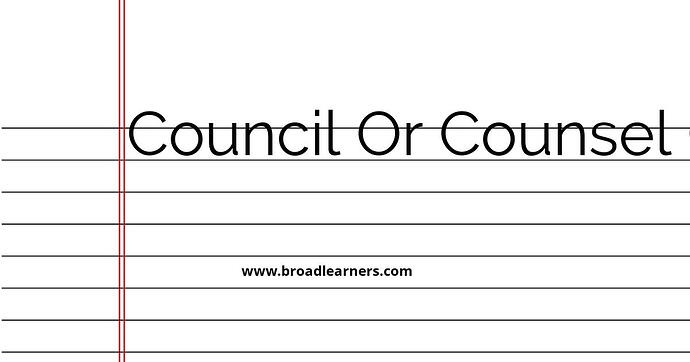'Council', 'counsel', and 'council' are commonly confused words in English grammar. Understanding the difference between 'council', 'counsel', and 'council' is important to use them correctly in written and spoken English.
'Council' is a noun that refers to a group of people who are chosen or elected to make decisions or give advice. It can also refer to a governing body or an assembly.
'Counsel' can be used as a noun or a verb. As a noun, 'counsel' refers to advice or guidance given by someone. It can also refer to a lawyer or a group of lawyers who represent someone in a legal case. As a verb, 'counsel' means to give advice or guidance to someone.
'Council' is a noun that refers to a group of people who are chosen or elected to make decisions or give advice. It can also refer to a governing body or an assembly.
Let's take a closer look at the meanings and usage of 'council', 'counsel', and 'council'.
| 'Council' | 'Counsel' | 'Council' |
|---|---|---|
| The word 'council' refers to a group of people chosen or elected to make decisions or give advice. | The word 'counsel' can be used as a noun or a verb. As a noun, it refers to advice or guidance given by someone. As a verb, it means to give advice or guidance to someone. | The word 'council' refers to a governing body or an assembly. |
|
|
|
To remember the difference between 'council', 'counsel', and 'council', it can be helpful to understand their specific meanings and usage.
Here are some examples of correct usage:
- The city council is responsible for making important decisions.
- The lawyer provided valuable counsel to his client.
- The council of ministers discussed the new policy.
Remembering the correct usage of 'council', 'counsel', and 'council' will improve your grammar and communication skills.
